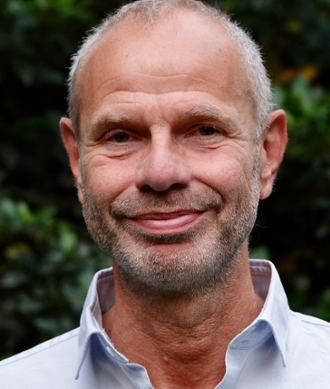A habitable world may refer to any number of things: clean water, healthy food, rich biodiversity, fresh air or a stable climate. But also: freedom, relaxation and the guarantee that there will still be products in the shops in 50 years’ time.
With our growing world population and increasing welfare, it is becoming difficult to safeguard all of this. We have so many examples of how not to do it, from pollution to endangered species. ‘But in recent decades, we have also made a lot of progress,’ says Peter van Bodegom, Professor of Environmental Biology, ‘thanks to discoveries and developments in the natural, social and environmental sciences.’
This combination of scientific disciplines can lay the foundation for positive change. Researchers offer the knowledge and technology required to take concrete steps towards a more sustainable world.
Advanced technology
Leiden is currently setting up an Advanced Research Centre on Sustainability, explains Geert de Snoo, Professor of Conservation Biology and Dean of the Faculty of Science. ‘Our aim with this centre is to link biodiversity, concern for our living environment and sustainable economy with the most up-to-date technologies,’ he says. ‘Advanced laboratory technologies can now be used in field research. In Leiden we have experts in all the disciplines we need to make this possible, from biology and environmental sciences to mathematics and computer science.’
Leiden researchers develop many of these technologies themselves – some at global, others at molecular level. They work on satellite technology to measure the surface and composition of forests from space, techniques to display the DNA of animals in water, and equipment to measure water quality.
Collaboration
Leiden University has always had a close relationship with the Naturalis Biodiversity Center. Many researchers work for both institutions. With its 42 million preserved plants and animals, fossils and stones, Naturalis has a world-class collection that is essential not only for its museum role, but also for scientific research on biodiversity. How this research can contribute to a more sustainable world was described by Naturalis and Leiden University in Nature4Life, a national sustainability knowledge agenda for researchers and policy makers.
‘We are constantly seeking collaboration both within and outside the University,’ says Herman Spaink, Professor of Molecular Cell Biology, ‘including with the business sector. Companies are becoming increasingly aware of how useful it is to invest in sustainability, because such steps always pay off in the end.’ A good example is the Green Circles project, in which Heineken collaborates with Naturalis and other partners to create a climate-neutral brewery and production chain.
Challenges
‘If we want things to change at political level,’ Spaink continues, ‘we as researchers have to demonstrate the added value of a sustainable society. We have to put precise figures on the value of protecting nature and biodiversity, and show how a green circular economy can work.’
These are not simple models, Peter van Bodegom remarks. ‘We have to move towards a systematic, integral approach that integrates the most important facets, from water quality and biodiversity to land usage and sustainable economy.’ Leiden is well-equipped for this, according to Van Bodegom, thanks to our global database of raw materials, Naturalis’s extensive collection, and the University’s combined expertise in the field of data science.
Centre for Environmental Sciences (CML)
Institute of Biology Leiden
Naturalis Biodoversity Center
Nature4life (in Dutch)





























